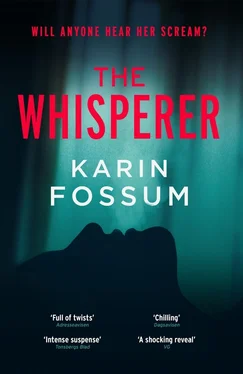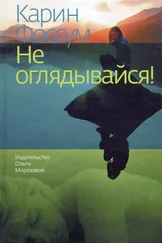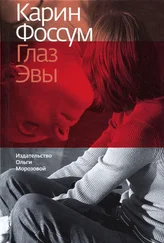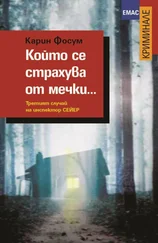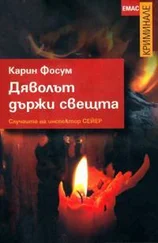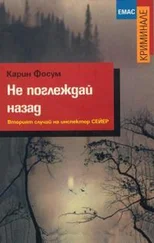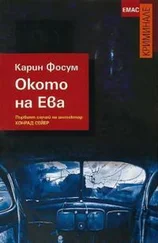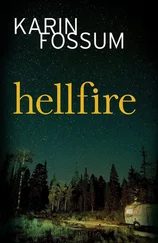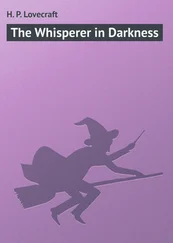‘And what about you, Daddy?’ she had asked. ‘What do you want to be when you come back?’
‘I want to be your father all over again,’ he had replied. ‘I want to be your father until the end of the world.’
‘Father to a small squirrel?’
‘I can carry you in my inner pocket,’ he had said. ‘The pocket here, closest to my heart.’
Since then, she had never feared death.
She opened the fridge and looked in to see if there was anything she could eat or make quickly, but there was not much there. She took out a packet of salami and ate a few slices, which of course made her thirsty. She did not have any more Uludag Frutti, just a bottle of juice that was mouldy. She could not understand why her fridge was so empty. She went over to the sink and drank some water straight from the tap, even though her mother had often told her when she was a little girl that she risked getting a tape worm that could grow up to several metres long in her tummy and steal any food that she ate, so she would be thin as a rake. And I always have been, she thought suddenly, so the worm has always been there. Once she was back in front of the wood burner, she thought she could feel something wriggling inside her, demanding space, it twisted and turned like a metre-long piece of spaghetti. But she had worse things to deal with now than a worm in her stomach.
She went out several times to collect wood. In and out in nothing but her nightgown, in the end she could not even be bothered to put on her boots. It was actually all right to walk barefoot in the snow, she had never done it before. She spent some time and a good deal of care piling the logs up on the floor, it might be a while before anyone came to her assistance. She would rather not have to go out and get wood in the dark, so she stockpiled enough now to last her until morning. Every so often she glanced at the TV, which was still on. She reckoned that sooner or later the Agent’s face would look at her from the screen, because he had been reported missing, or, even worse, her own face would appear. No, how on earth would that happen, no one other than Walther had any photographs of her. But she had to follow what was happening, she had to be prepared. She kept the fire going in the burner until the glass was black with soot and she could barely see the flames, only a few glowing points in the depths of the burner. She needed to rest again. She turned down the volume on the television and curled up on the sofa, pulled a blanket over her, and listened out for footsteps and voices, or cars pulling up outside and doors slamming. Looked up at the UFOs’ red flashing eyes.
The fire had died down a long time ago, and there were only a few embers glowing in the blackened logs. She saw the Agent’s magazines scattered on the floor, they would burn well. So she got down on her knees in front of the burner and tore off the pages one by one, and watched the young orange thief being eaten by flames. The boy’s body curled up as it would in a crematorium oven. As she sat there staring into the flames, she realised that it would probably be a long time before she had the opportunity to visit her parents’ grave again. She had always enjoyed going there, and no one could say it was not well looked after. Which would not be the case with her own, when the time came, and that might be soon. But it was Sunday, she remembered. No shops would be open so she could not buy flowers or candles, and she could not go to the grave empty-handed, in the same way that one does not go to a party without a gift. She closed the door to the wood burner, steeled herself and ventured out into the kitchen to see if she had anything suitable. She avoided looking at the Agent. She might have something she could give them that would look nice on the white snow. She rummaged through the drawers and cupboards. She found the twisted advent candles that she had not used yet, but they would blow out straight away. Eventually she found a packet of serviettes that were cream-coloured, with pink roses and green spiky leaves. They were exceptionally beautiful, she thought. She popped them into her handbag. Then she put her coat on over her nightgown, found some gloves and pulled on a pair of wellies that were standing in the hall. They were not warm, but they were closest to hand.
When she opened the door she discovered it was dark outside. Perhaps she would need a torch, but then she remembered all the spotlights in the graveyard, and one of them was not far from her parents’ grave. She did not bother to lock the door, did not know whether it was evening or night, as she had not bothered to look at the clock. But there were still lights on in Olaf’s house. As soon as she was out on the road, she realised how slippery the boots were and how cold it was. She was not wearing tights and her coat was short, so her legs were bare. Struggling to stay on her feet — as there was ice everywhere and the gritters had obviously not been out — she looked to the right and the left, then crossed the street. She walked quickly past the closed shop and remembered once again that it was Sunday, so there were not many buses. She never took the bus on a Sunday, but guessed there was only one an hour, or two if she was lucky, and she was never lucky. She waited and listened. The bus had a special drone that she would hear long before it appeared. She kept looking in the opposite direction, where she knew the police would come from when they got the message. But she saw no blue lights. She tried to curl her toes in the wellies, stamped up and down on the icy road, to keep the blood circulating in her body. Olaf’s house looked so warm and inviting. She could clearly picture Dolly, curled up in front of the fire. After a long wait, the bus came rumbling up Kirkelina, it was almost empty and she slipped into her usual seat. When the bus passed her house, she looked up at the light in the windows and found it hard to believe that it could look like such an ordinary house. No one knew anything about the Agent under the green tarpaulin, all they would see was the light, which they might associate with warmth. She opened her handbag and took out the packet of serviettes and admired them through the plastic. Her mother had taught her numerous ways to fold a serviette, she could make a fan or a rose, a bow or a heart, a lily or a pyramid. But she noticed these were three-ply and soft. The more expensive the serviettes were, the harder they were to fold.
Her cheek against the window, her bag in her lap. No flashing blue lights coming towards them, and she could hear no sirens. She looked up at the black sky over the town. They all believed that it stretched on for eternity, whereas in reality, the atmosphere was as thin as a bride’s veil and the sky stopped just beyond the tallest skyscraper, or after twenty minutes in a rocket. Twenty minutes, she thought, and then nothing. Beyond was just dark and cold, and beneath the veil, tiny people lived inside a glass cloche.
She slipped several times on the narrow path up to the church. The ice lay like a clear film on the paving stones and she moved as carefully as she could, bent over like an old lady. The boots were too big because she had no tights on, and the soles, although ridged, did not provide much grip. She turned to the left by the entrance and followed a well-trodden path round to the back of the church. When she saw her parents’ grave up against the wall, illuminated by the nearby spotlight, the sorrow sank through her like a heavy stone. It weighed her down. The feeling of loss was more acute than ever. Here they lay, as close together in death as they had been in life, but it was only she who thought of them, only she who offered kind thoughts. If I was God, she thought, I would breathe life into them again. But there was no God, not up there, nor down here. She fell to her knees, no longer cared about the cold, the snow on her bare skin was nothing. She glanced quickly over her shoulder to see if anyone else was around, but there was no one there that cold Sunday evening, she was alone with the dead.
Читать дальше
